Meet Luca Bertaglia | Professional Musician, Drummer, Educator, & Bandleader.


We had the good fortune of connecting with Luca Bertaglia and we’ve shared our conversation below.
Hi Luca, we’d love to hear more about how you thought about starting your own business?
In the world of arts, the business aspect has always been the other face of the coin, but I don’t think it has ever been a specific thought or a point in time that it became official for myself, as well as something that it’s not definitive or final. Rather more of a situation that constantly adapts and that will probably keep evolving as the whole world does. That being said though, the birth of my projects, the Luca Bertaglia Mind Project first, which was then followed by Flare and OPPOSITE, had a big impact on it. I started thinking about myself not just as a musician who could do his job, but also as what I could present to the table that the people I want to connect with can relate to. Therefore I considered myself as a brand too, something that can be consistent and recognizable through specific details. It can be the style of my music, the sound of my drumming, my logo, the way I approach the people I work with and/or the crowd participating at the shows, and so on and so forth. Honestly speaking, it’s not something I enjoy, and I wish the role that a brand plays into the decision making process – regardless of that being a conscious or unconscious choice – would not be as important as – if not more – of the “product” itself. In this hypothetical scenario the quality of what we decide to surround ourselves in, and therefore of our lives, would increase exponentially, probably causing a big crash in the current economy. But every successful business that we can think of, has strategically thought about all of these kinds of aspects, along with many others, and the reason why we have those as part of the list in our mind, is the proof of how crucial, important, and effective branding is for the success of a business.
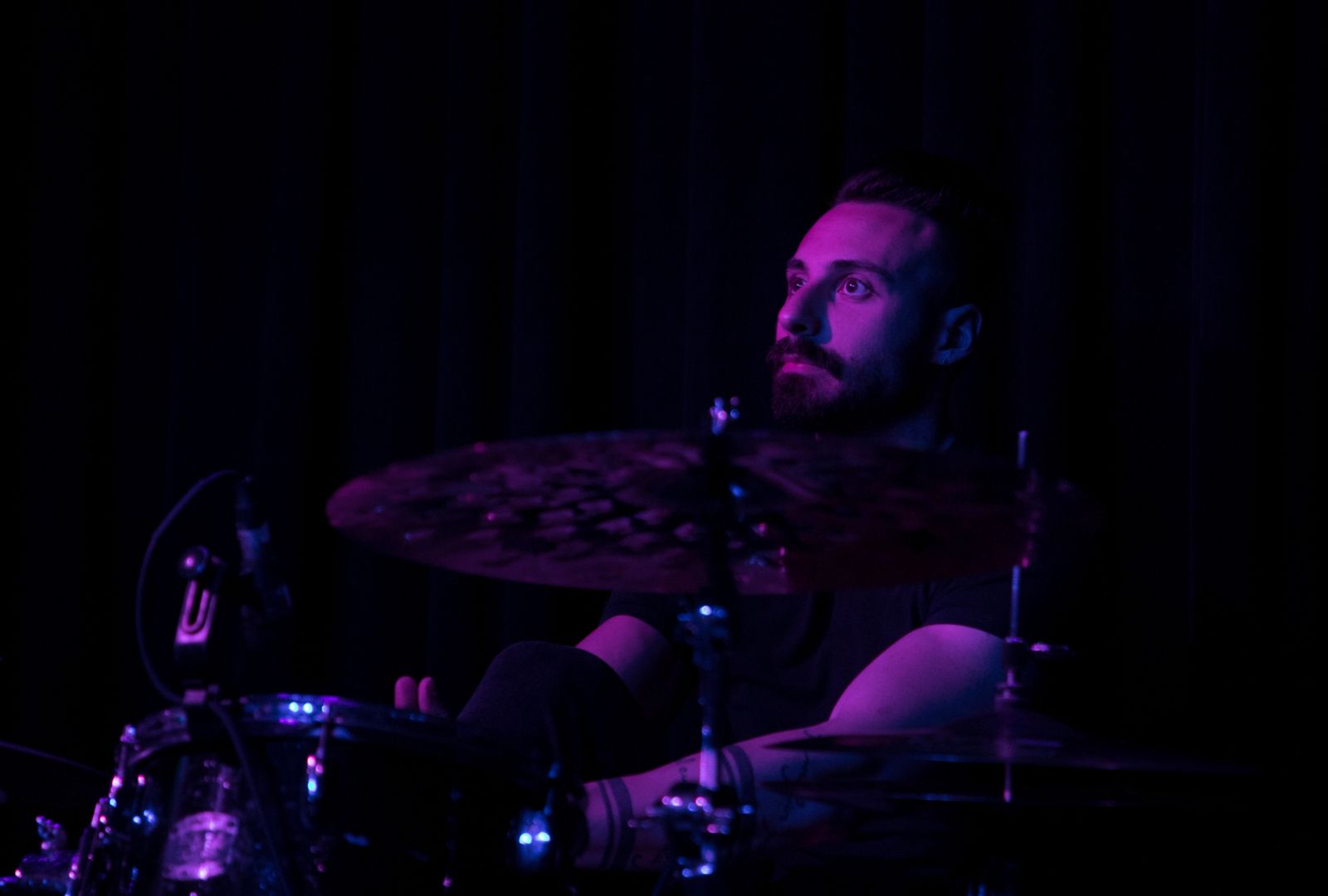
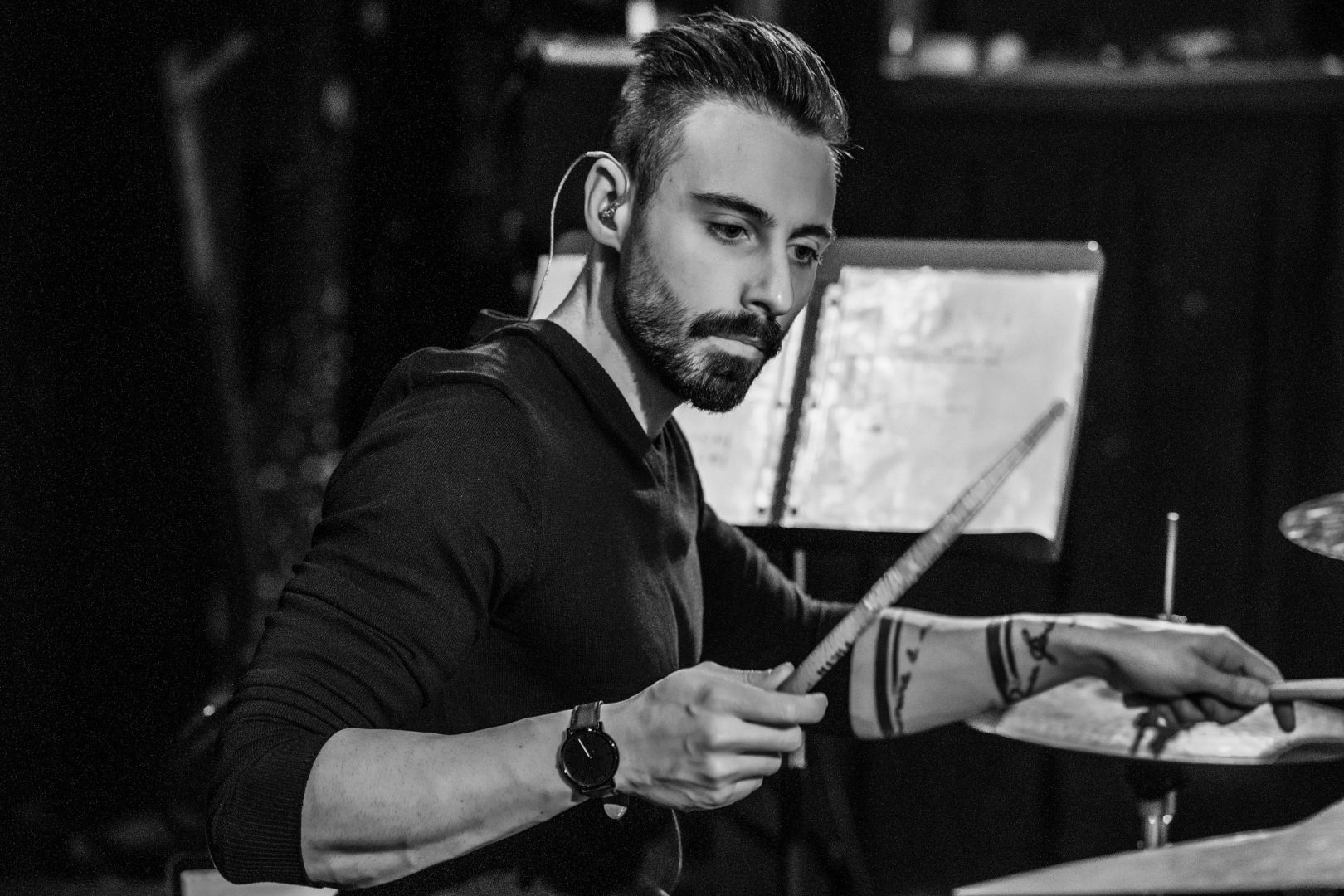
Alright, so let’s move onto what keeps you busy professionally?
When looking at someone’s career and achievements, we rarely take into consideration everything that preceded them, what came to place to get to that point, and that’s what I believe makes the difference. I’m not a fan of comparing yourself to others, most of the time, it just brings more harm than good. But I can’t unsee how overcoming situations that I had to face gave me skills that, I believe, set me apart from other professional musicians. When I moved – by myself – to New York, in December 2013, I didn’t speak much English, surely nothing compared to the standards required to survive in this city. I didn’t know anybody, and even if I was fortunate enough to have an Italian roommate who helped with the most challenging tasks – such as opening a bank account – I had to learn the language fairly quickly to get through the day and survive. I am pretty fluent now, but that doesn’t prevent me, and surely didn’t throughout all these years, to face the cultural and linguistic barrier. Perhaps it doesn’t seem like a big deal to some people, but part of my job – which is also an important aspect that allows me to work more – is to build connections, a network of people not only interested in my skills, but also in my life. I have been in multiple situations, especially in the first few years, where not having an American background, got in the way – consciously or unconsciously – of forming personal relationships, which could have then become business ones. This has forced me to be less introverted – and who knows me can testify how much of a lone wolf I am – and to socialize more with people of the industry and not. But music is a language, as we all know, and each language has its traditions and cultures. So learning and being immersed in a different culture speaking a different language, indirectly increased my musical skills, and the ability to quickly learn a new style of music and the culture behind it, seeing it through a different point of view.
Since I moved from a country that is not part of the United States, I have been required to have a visa that would allow me to legally stay and work, until its expiration. Right after my Student-Visa, which didn’t let me work in any way, and that covered the two years spent in the first music school I attended – The Collective School of Music – I found myself with no choice but to apply for the Artist-Visa. I won’t get too much into the details of the whole process, but not only it’s extremely hard to get, it is also a tedious process that took constant effort and work for months, time that I could have spent practicing and working on my projects. By doing so I not only learned a lot about the whole process and the bureaucracy behind it, but I also had to improve my work ethic, increasing the amount of sacrifices that allowed me to catch up with the development of my musical skills, work ethic.
Even if drums have notes, we can’t play harmonies and melodies with them, at least not as much and as easily as with an instrument built mainly for those functions. Drummers are therefore expected to learn another instrument which requires an insane amount of work and effort to learn ear training, an essential skill for well educated musicians, especially for Jazz music.
Living in the Big Apple gives you a lot of work possibilities, but it has its downsides. The rhythms of the city are exceptionally fast, and it’s an extremely competitive scene. Everywhere you go you find yourself surrounded by insanely talented and skilled artists. Sure, this motivates you to give more than your best in every occasion, but at the same time it truly challenges your ability to handle stress. This brings me to the next set of skills that a NYC musician learns to develop fairly quickly, the ability to perform at his/her best without many rehearsals, sometimes none, and manage his/her life on a tight schedule. Not only is New York an hectic city, but it is also outrageously expensive. That means that people, if they can, try to save time and resources, therefore there are situations where the first opportunity you get to meet your new bandmates and play their songs for the first time is during the actual show. I have to do my best to perform correctly right from the first time, to sight-read charts never seen before while playing them, to interact with musicians I’ve never met until that point. Attending The Collective School of Music put me right into those situations, making me play every class not with the other students, but with the teachers, top-notch musicians of the New York music scene. I’ve also learned to play with great intensity at extremely low volume, which is probably the hardest thing to do. All because a lot of venues in NYC are exceptionally small, due to the high rent. And when you play in restaurants or hotels, people don’t want to be annoyed by the music while having a conversation, it has to be their background.
At the moment I am the bandleader of my three projects, the Luca Bertaglia Mind Project, Flare, and OPPOSITE. Each of these projects is different, offering music and performances from modern Jazz to Contemporary Fusion, to a mix of different genres, combining acoustic instruments with electronics and visuals synchronized with the music. I also work as a full-time member of five other bands, and I get hired by other artists for whatever situation they need me. This allows me to perform a wide variety of music, adapt my playing to different styles, compose and arrange songs for different ensembles, and be able to deeply focus for multiple gigs – rehearsals, recording sessions, shows, etc, etc – on the same day. At the same time, I have learned how to receive and follow instructions that I get paid for, regardless of whether I agree or not on those musical choices, how to express my ideas without stepping onto someone else’s toes, giving directions and telling people what I need from them without sounding, nor being, disrespectful.
In addition to all of the above, I also teach in two music schools, as well as privately. When having a wide variety of students of any level – from 5 to 70 years old – you need to be able to explain and play the same concept in an endless amount of ways, and that shows you if you truly understand and can play it. But when teaching, there isn’t just the musical aspect to take in consideration, but also the human one, which to me, is the most important one. I had multiple students with issues, some personal, some mental, some physical. Regardless of what it is, they have to be and feel comfortable, and my background in psychology surely helps me deal with those situations. Staying in the teaching scenario, but talking about it from the other side of the spectrum, that I was, and still am, extremely lucky for, is being able to take lessons with the best musicians in the world. Living in New York allows me to see live concerts of my idols. That itself is already a great lesson, but I also have the chance to connect with them after the show and perhaps schedule one, or more, privately in person. Which is why I found fantastic the option that The New School of Jazz and Contemporary Music gave me to take private lessons with whoever I desired. When I think of all the people I studied with, I still have a hard time believing it, people that years ago I was only dreaming of seeing performing. And noticing how each one of them has a different perspective of the same concept is mind blowing, but at the same time it gave me the tools to approach it through a multitude of angles I would have never thought of, and then choosing the one that worked best for me.
The background of different cultures allows me to see situations from multiple perspectives and perhaps offer something new, refreshing, and different. Utilizing what I’ve assimilated from both the Italian culture first and the American one later, along with all the skills I’ve developed in these years, combined with my modern vision, makes me proud and excited to offer a unique version of the musician I am today, a version that keeps evolving and improving.
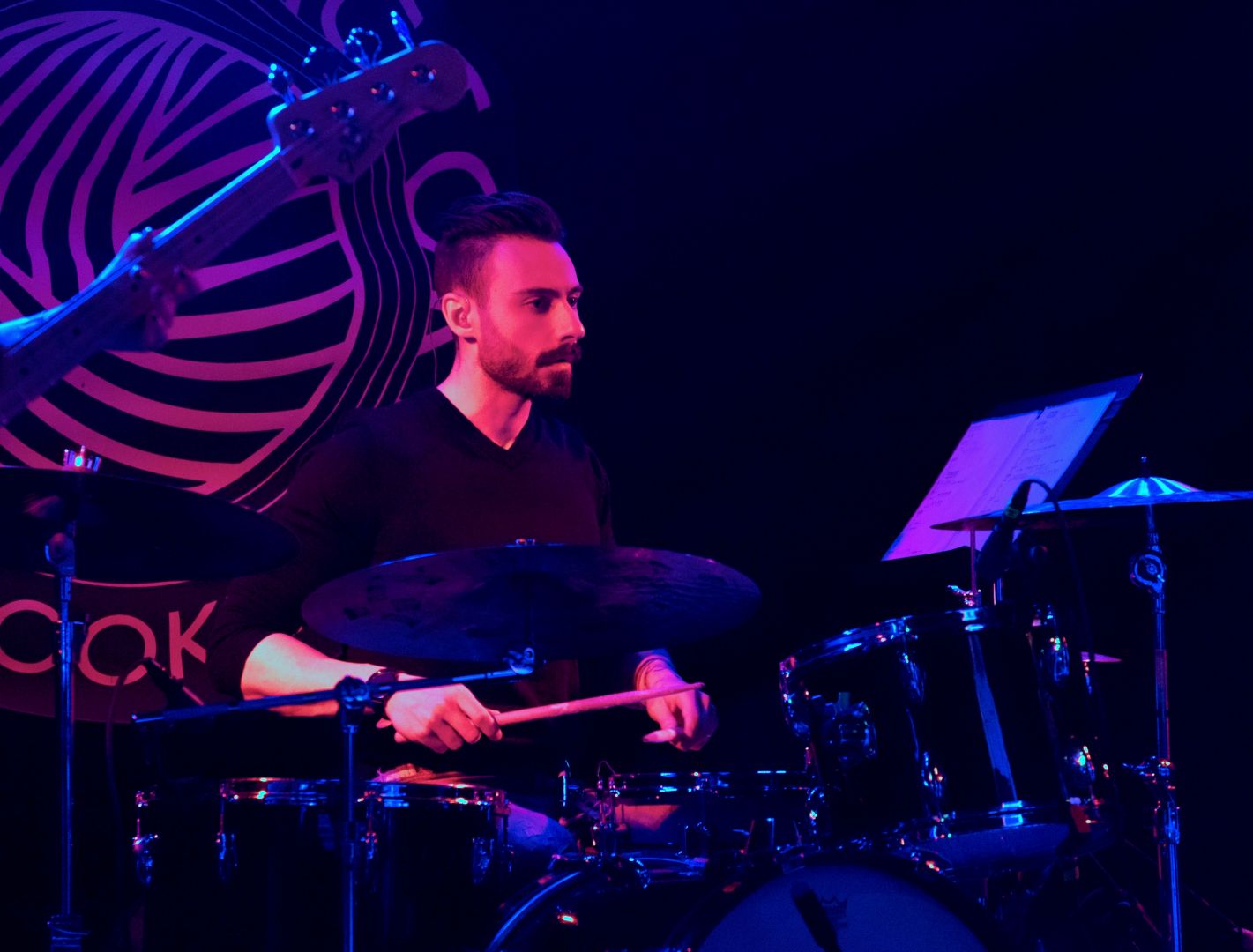
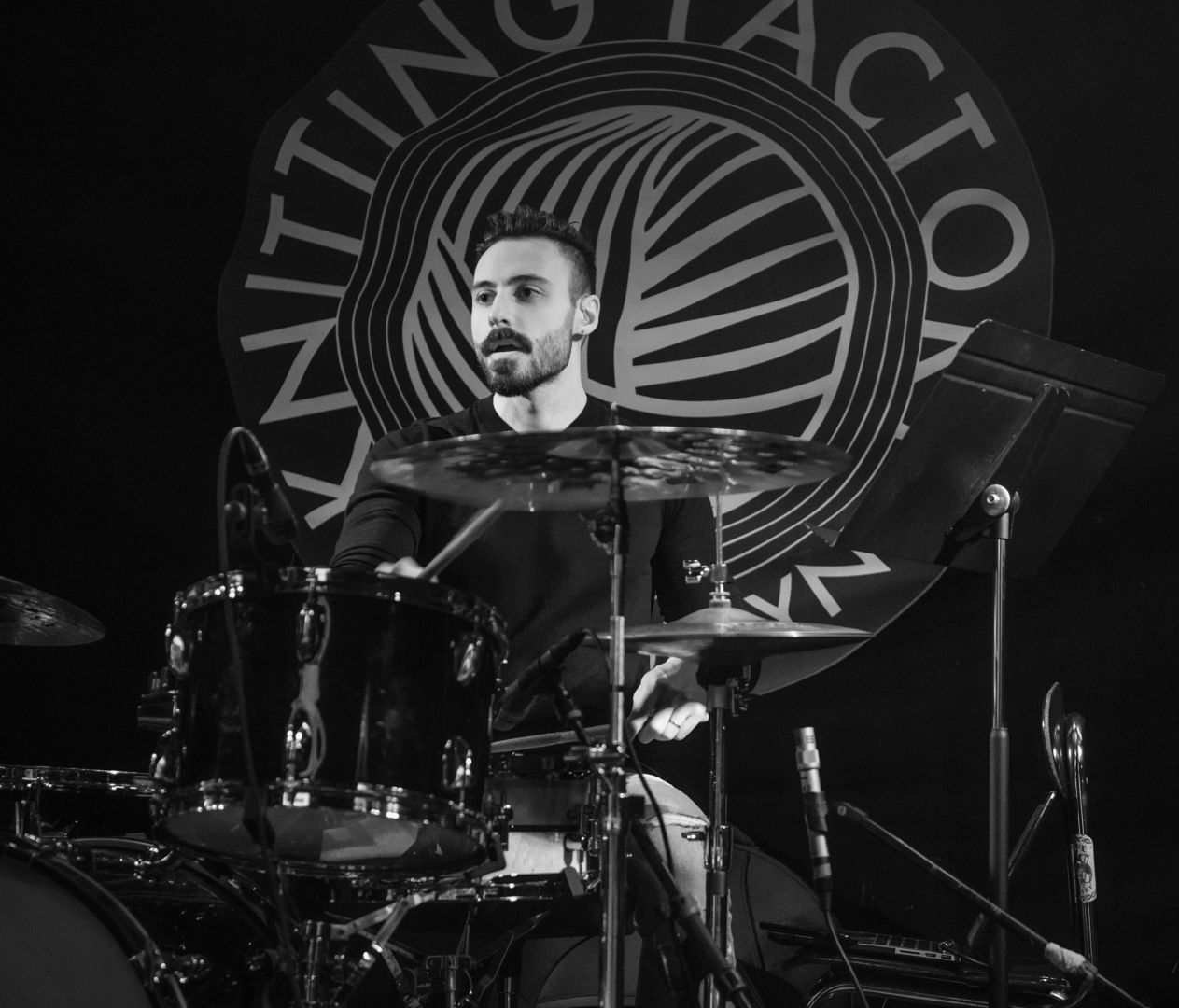
If you had a friend visiting you, what are some of the local spots you’d want to take them around to?
I have been living in New York for ten years, so you can imagine how many times I faced that situation, but I have to admit that it is never an easy task. There are so many places, and the city is constantly changing, so much that I keep discovering new corners. I’m constantly debating between the most iconic spots, my favorite ones, or even go somewhere I’ve never been, with the chance of not discovering anything special. Luckily, areas like Dumbo and the Brooklyn Bridge — along with its park — Little Island, Central Park, Grand Central, and Bryant Park, fall in both first categories. I’ve always thought that a good vacation in the Big Apple would need to be at least two weeks long, the first week to visit as many places as possible and the second to walk around and enjoy what the city offers while stumbling upon something new. The locations listed above give you the chance to be surrounded by nature while being at the center of the world. But you can’t come to New York and not check out the view from its highest through the observatory points of the Freedom Tower, the SUMMIT One Vanderbilt, and the most iconic one, the Empire State Building. Being up there gives you the chance to zoom-out and be isolated from the chaotic streets of the city. It’s a totally different experience, breathtaking. I would definitely bring my guests to Times Square because it’s one of the most touristic places, but honestly, I’m not a fan of the mayhem it presents. My ideal itinerary would also include walks on the East and the West sides of Manhattan, then around the Village, SoHo, and Williamsburg, with some breaks in unique coffee and cocoa shops. Ideally there would also be the chance to go Upstate NY to breathe some fresh air and have a different perspective of what’s outside the “center” of the city, places like Cold Spring and Sleepy Hollow. At night I would bring them to see a live show, perhaps at the Jazz Gallery and then have dinner in some of my favorite restaurants. Of course these choices would be made based on their taste as well, but either way, they’re going to have a good time in one of the most unique cities in the world.
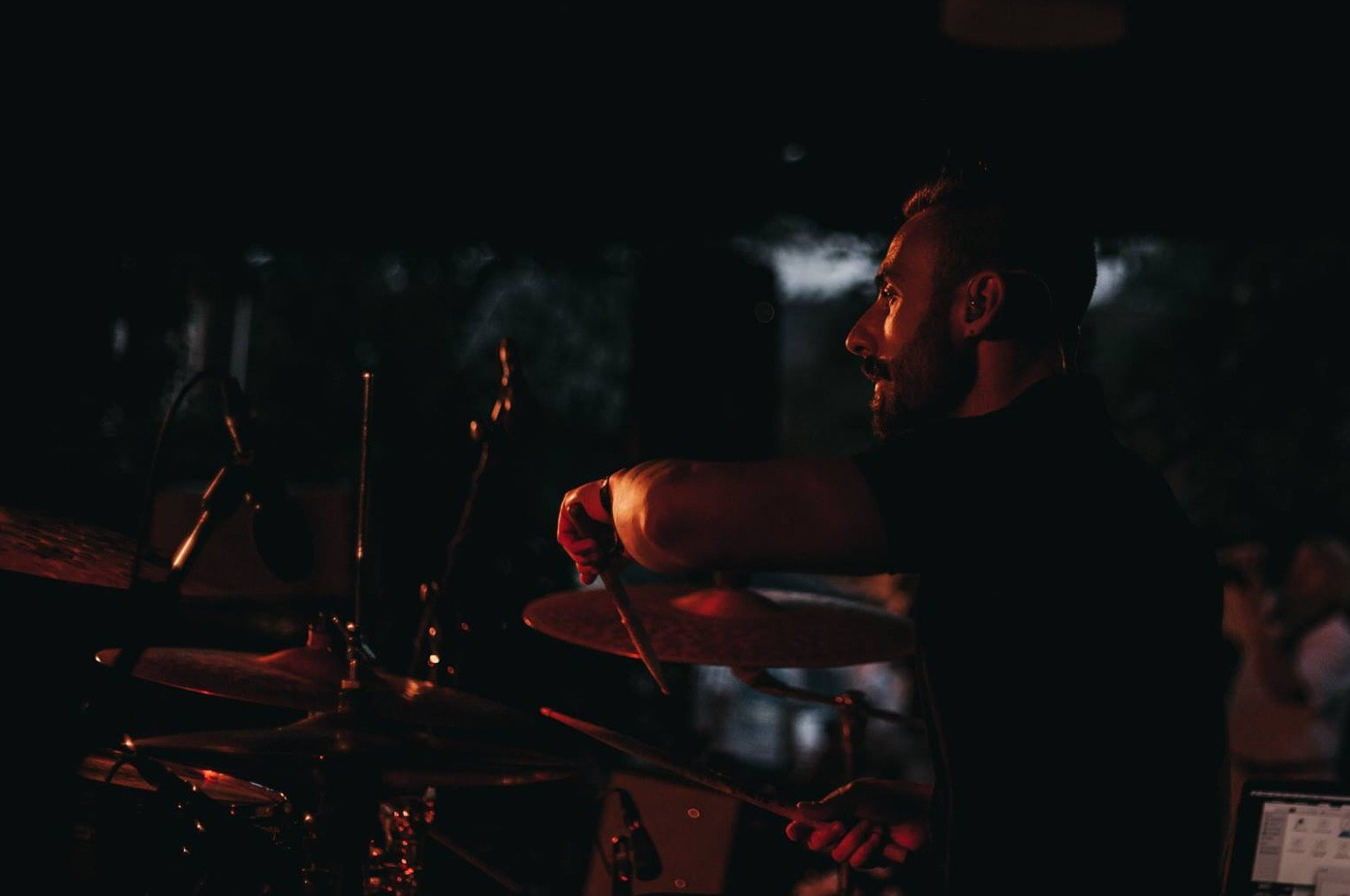
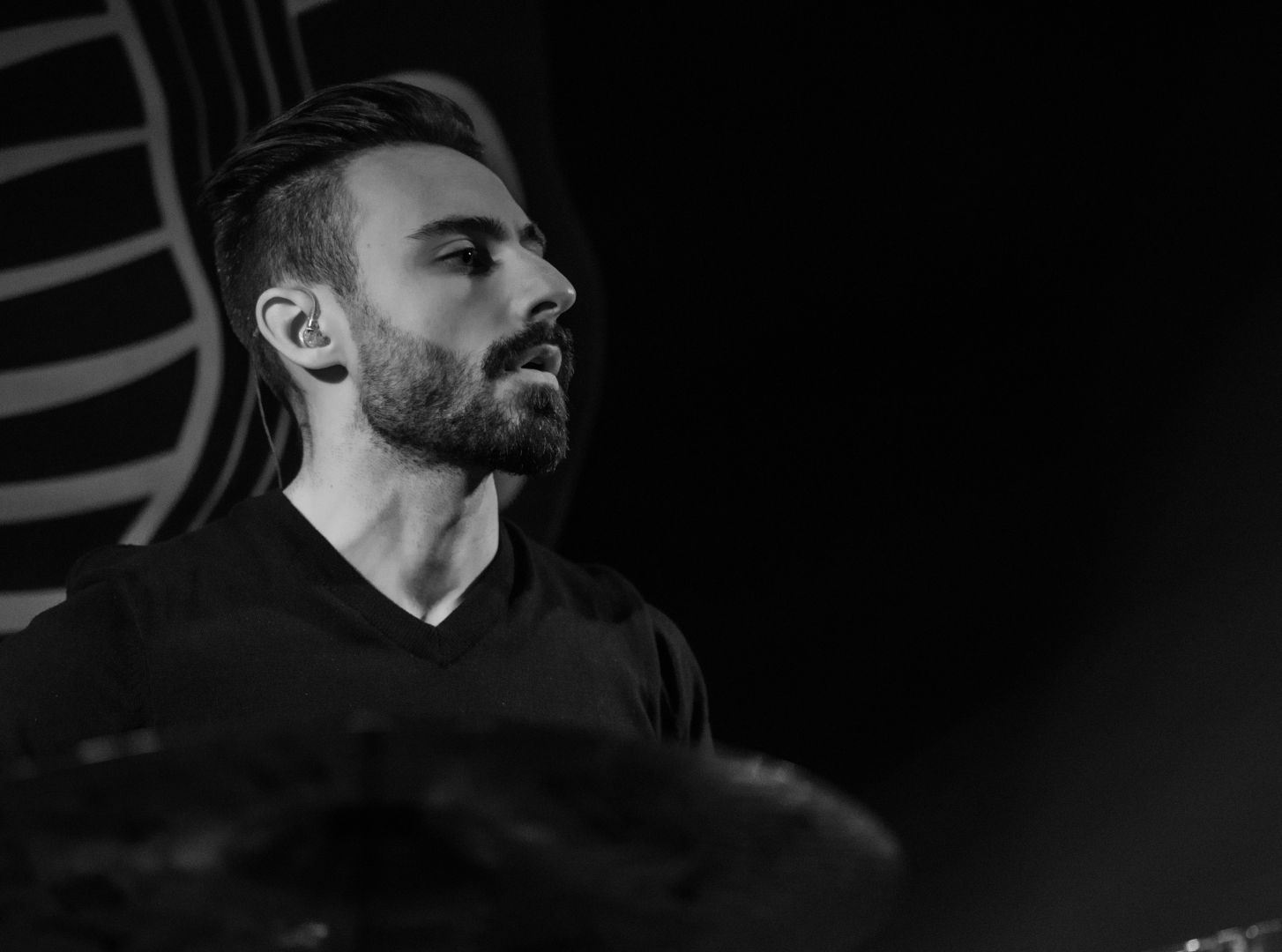
Shoutout is all about shouting out others who you feel deserve additional recognition and exposure. Who would you like to shoutout?
Being an artist, specifically a musician in my case, can be extremely difficult sometimes. When your work and product can not be measured on a specific scale and almost everything is up to interpretation, the sense of achievement gets lost quickly. There isn’t an established scale that can quantify how much a piece of art can be correct, beautiful, or even less successful. None of these aspects are tangible, most characteristics are subjective, you might like a specific genre of music, and I might like another one. But to me, that is the beauty of art, even more with music. I’ve always found more interest in things that are unique in their kind, and art can give you exactly that. The particularity of music though, which for some aspects might be true for other art forms as well, is that I could take a song that you don’t like and through a different arrangement and/or interpretations, it might even become your favorite. To go even further, and this is particularly true with styles of music that have some sort of improvisation in them, the same song can be presented in a different way every single time, and, if not recorded, the same version will never happen again. Unfortunately, there are a lot of downsides to that. Let’s take, just as an example, a tune I’ve been working on and make it just right, in my opinion, of course. It took an incredible amount of work, time, effort, and skills, but it was worth it, and I feel a sense of accomplishment and satisfaction. Well, I might be the only one that feels that way, and the song won’t sell a single copy. These are just examples to underline how and why, to me, having the constant support of the people I care about, especially my loved ones, has always been crucial for all my achievements. I can not thank them enough for always believing in me, even more than what I did and still do. They will always be in the first place. Without them, I wouldn’t have come this far, as a matter of fact, I wouldn’t even be a musician. Every day is uncertain, and regardless of my failures or success, they’ve always been there for me, not letting me quit or doubt myself. Right after them, each one for different reasons, I want to thank my friends, my teachers, my colleagues, and my students, who support me and give me the chance to collaborate, work, and improve myself. When it comes to the people that did not believe in me and negatively impacted my life and career, I don’t think they deserve to be thanked, but somehow they made me the person and musician I am today. However, it’s only thanks to the positive people in my life that I was able to get the best out of those situations. And last, but not least, I think I deserve a little bit of recognition. To be honest, the first step towards this was on me. I keep trying to do my best, to put in the right amount of work, and to do the sacrifices that ultimately allow me to still be here and move forward with everybody else.
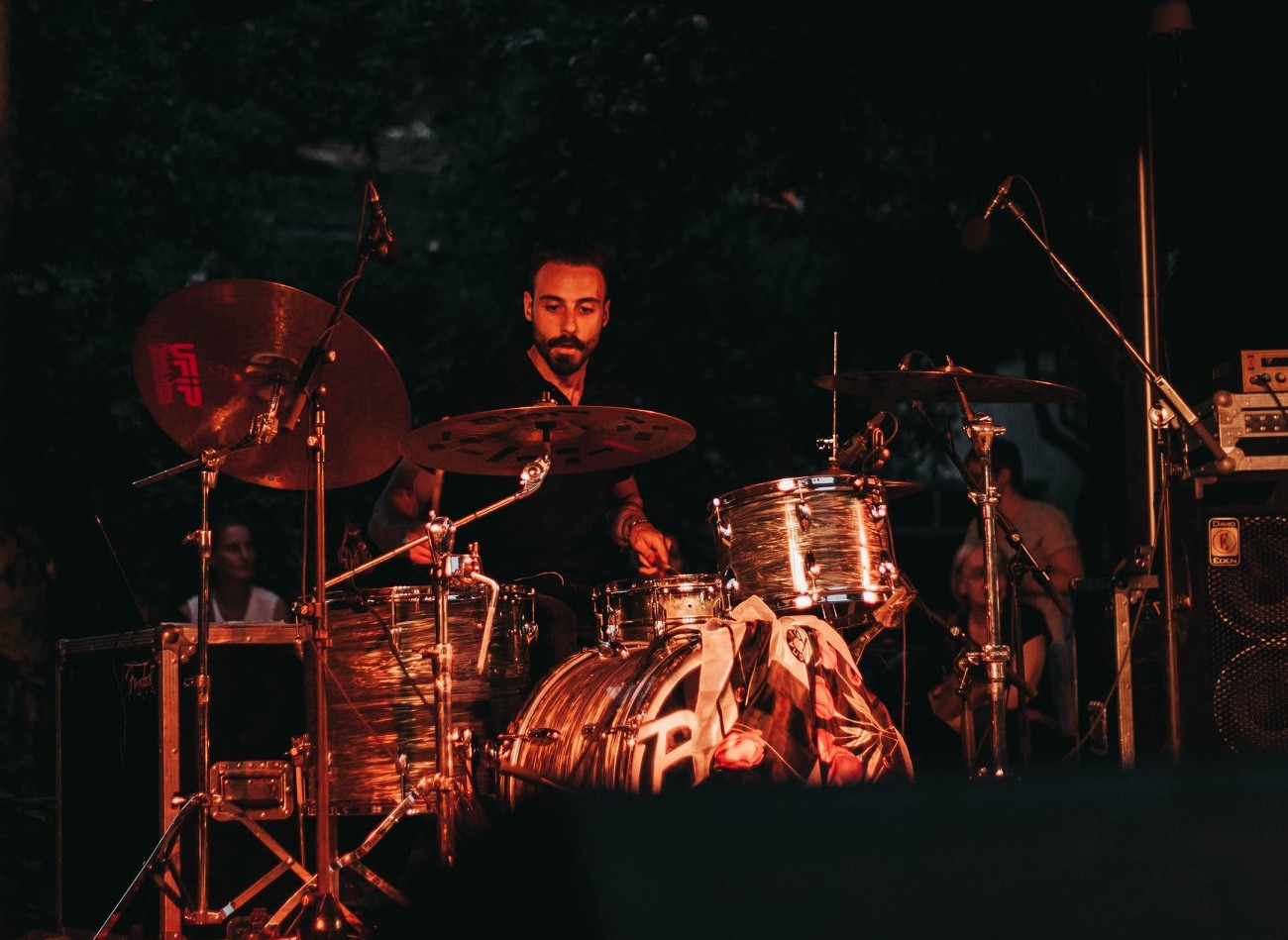
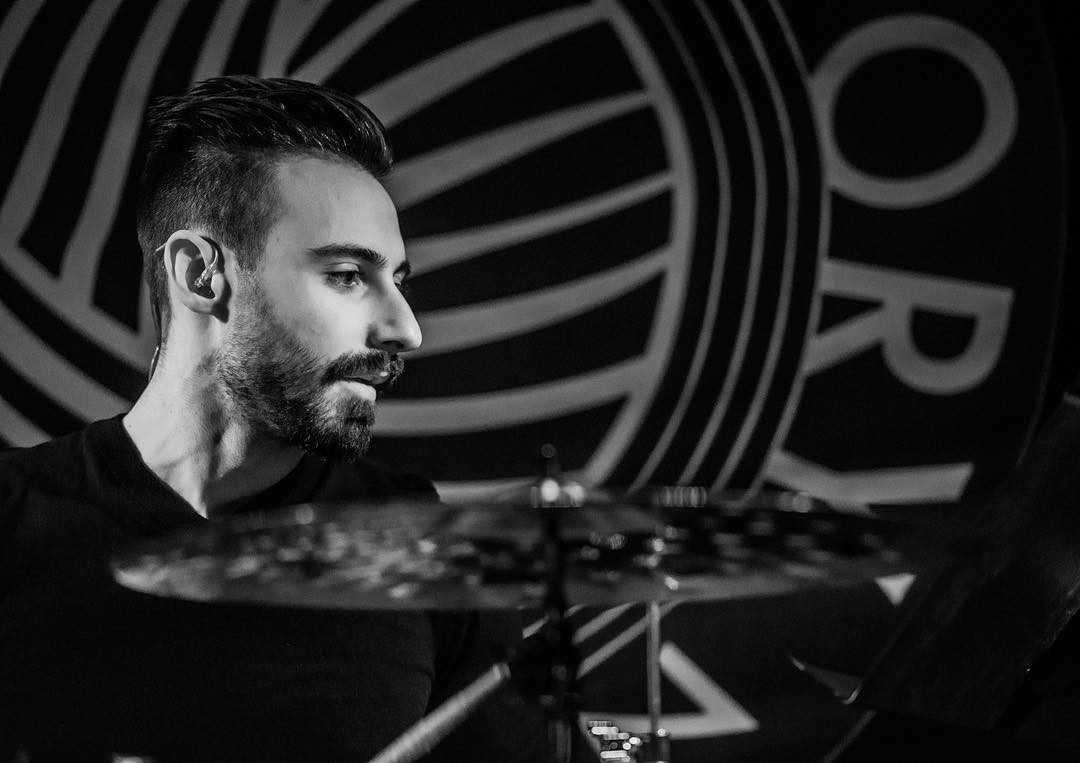
Website: www.lucabertaglia.com
Instagram: https://www.instagram.com/luca_bertaglia/
Linkedin: https://www.linkedin.com/in/luca-bertaglia-711612106/
Facebook: https://www.facebook.com/lucabertagliaofficial
Youtube: https://www.youtube.com/@LucaBertagliaDrum/videos
